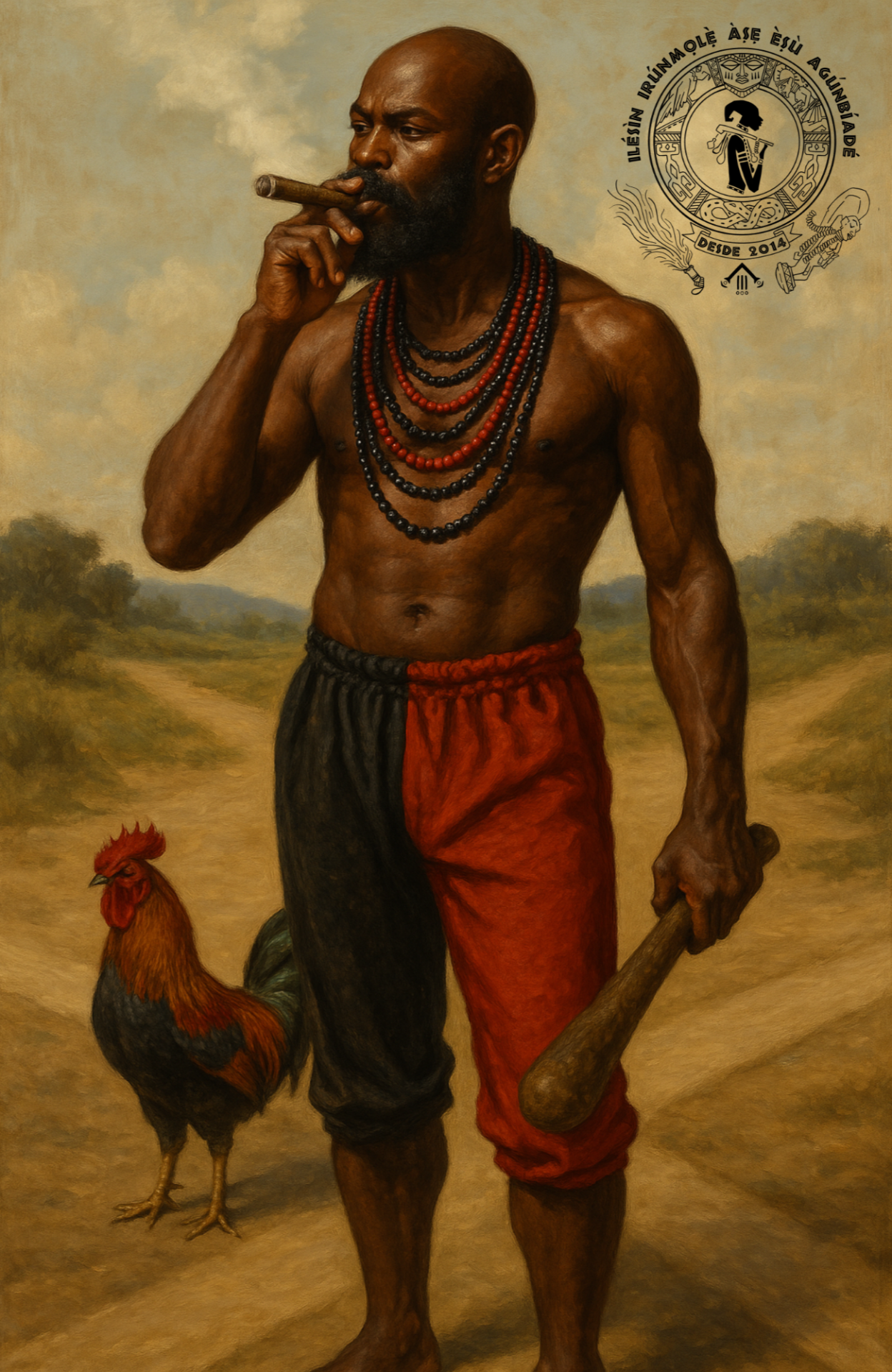Òrìṣà Èṣù fumando charuto, por Hérick Lechinski

Assunto polêmico, mas necessário. E buscando trazer a minha visão e conhecimento para os meus seguidores que resolvi escrever este texto.
Vamos iniciar esta conversa na Nigéria, na Nigéria não é um costume oferecer cigarro ou charuto para o Òrìṣà Èṣù, nem em seus Ojúbọ (locais de culto) e muito menos o Ẹlẹ́gùn (possuído) fumar cigarro ou charuto. Um pouco diferente no Benim que já vemos cigarros sendo oferecidos e queimados nos Ojúbọ do Vòdún Lẹ́gbàá, mas também nunca vi um Lẹ́gbàásì possuído fumando cigarro ou charuto. Aí chegamos em Cuba, sim, lá Eleggua fuma charuto quando possui seus iniciados, na minha visão isso é cultural de Cuba, já que o charuto é algo bastante cultural de Cuba, vide os famosos charutos cubanos. No Brasil não vemos ẸLẸ́GÙN ÈṢÙ (no Candomblé e nem no Batuque) fumando cigarro ou charuto, ahhhhh, mas algumas pessoas vão falar: "o Láàlú de seu Djalma fumava charuto", que bom, respeitamos, mas não podemos ter isso como uma tradição do Candomblé Kétu, ao contrário da Santeria, que é tradição Eleggua fumar charuto.
Mas agora a pergunta, qual o motivo do Òrìṣà ÈṢÙ quando possuir seu Ẹlẹ́gùn fumar charuto?
Não podemos dizer que é um gosto do Òrìṣà ÈṢÙ, porque ele não faz isso nem na Nigéria, hehehehe, seu local de origem, e também não pode ser considerado uma tradição do Candomblé Kétu, se não todos os Ẹlẹ́gùn Èṣù do Candomblé Kétu fariam isso, fumar charuto. Será que isso tem um significado espiritual? Algumas pessoas até podem dizer que a queima do tabaco/fumo purifica o ambiente, mas, isso também não é um mecanismo tradicional de limpeza espiritual utilizado no Candomblé.
Então eu pergunto, qual o motivo do Òrìṣà ÈṢÙ fumar charuto quando possui seus Ẹlẹ́gùn?
Copiarem os costumes de Cuba, ou será que estão possuídos por um espírito/ancestral que gosta de fumar charuto?
Algo para se pensar não acham?